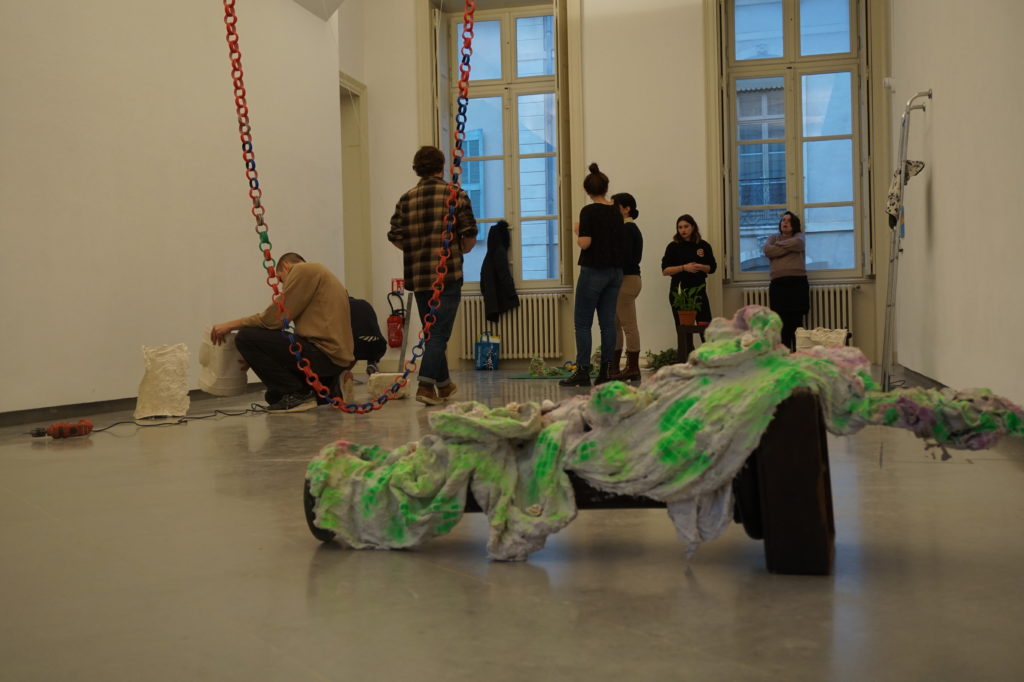
Research in art is experimentation. It is based on the invention of particular methods, forms, and tools. There are no pre-established rules for this innovation, which occurs within a dynamic and open process specific to artistic creation. Moreover, the specificity of art school teaching stems from the fact that the teachers are involved in the art world as artists or art critics, who are engaged in active research. Likewise, our different research programs are based on their singular artistic practices and interrogations, which enables their research to escape from the university models. Research in art schools chooses to deliberately link thought and experience, in pursuit of sensitive knowledge, shuttling back and forth between creation, critique, and action.
Research at the ESBAN nourishes our educational program from first year to fifth. It is organized in two cycles, based on two scientific fields of inquiry: Spatialities and Experimental Forms of Writing and a seminar taken by all students, Forms of Research. ESBAN also belongs to Réseau Peinture (Painting Network), a national network of nine art schools in France.
Our Research Unit
In 2019, the organization of the ESBAN Research Unit, whichincludes ESBAN professors and outside research partners, was validated by the Ministry of Culture that funds it. This unit coordinates the various programs. It oversees cooperation projects, conventions, and partnerships with artistic institutions, such as museums, art centers, and FRACs-regional collection of contemporary art, and with other art schools and university research organizations. It devises calls for projects and coordinates all activities related to research, such as study trips, exhibitions, study days, and symposiums. It also manages and follows up on publications. It is organized around two scientific fields: Spatialities and Experimental Forms of Writing.
ESBAN Science Council
A Science Council was created in May, 2020 in order to provide support and assistance for defining the orientations of the ESBAN’s research policy. Made up of art experts, this Council is asked for expertise on: the coherence of the ESBAN’s scientific policy and how it is implemented; how the internal assessment procedures for research activities are implemented; how resources are allocated to the different areas of research and to each of their programs, the requests for research activities by ESBAN theorists, artists, and students; the publishing policy and how research is disseminated; any research project developed by the ESBAN internally, externally, with a doctoral school and/or partnership, participation in networks, particularly in the framework of calls for projects; the co-construction of research with academic or other partners.